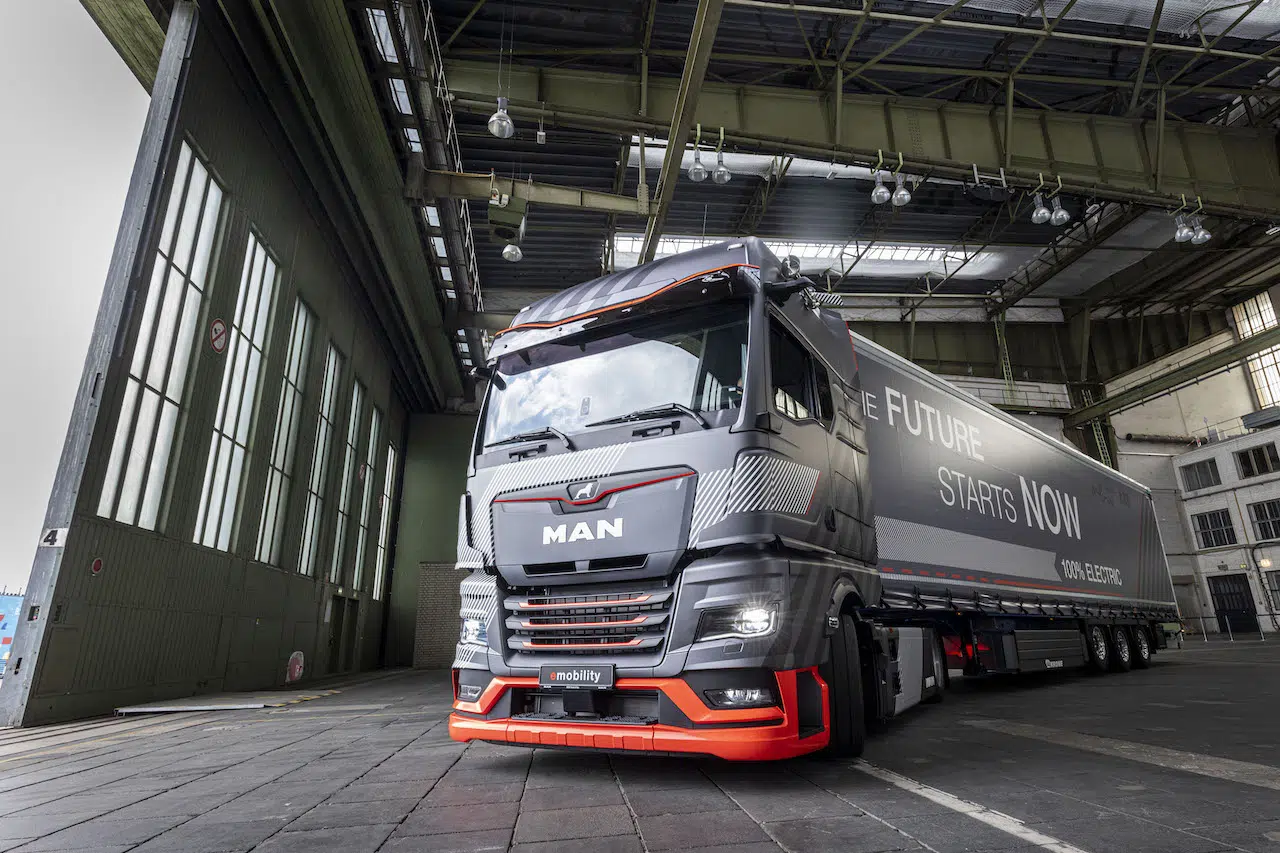MAN and ABB work on megawatt charging for long-distance electric trucks
The project is intended to be the basis for a nationwide expansion.
On the grounds of the former Berlin Tempelhof Airport, MAN Truck & Bus has for the first time publicly driven a near-production prototype of its upcoming electric truck in the presence of Federal Transport Minister Volker Wissing (FDP). A special technical feature of the electric truck, which is scheduled to make its market debut in 2024, is its preparation for future megawatt charging. ABB E-mobility, a global provider of charging solutions for electric vehicles, aims to bring megawatt charging technology to market in the next three years.
In this way, MAN and ABB E-mobility want to ignite the next stage of electromobility: The suitability for use in heavy long-distance truck transport with daily ranges of between 600 and 800 kilometres. In addition, with their clear commitment to electric mobility, the two companies want to make it clear that the industry is ready for electric driving. Now the politicians must create the framework conditions for emission-free road haulage, MAN said in a recent statement.
"To achieve our climate targets, we must decarbonise road freight transport. To do this, we are focusing above all on the market ramp-up of climate-friendly commercial vehicles and the development of a corresponding high-performance charging infrastructure. The project on high-performance charging for e-trucks on the A2, which we are supporting, is providing key findings in this regard. The important thing now is to get more e-trucks on the road quickly. The cooperation between MAN and ABB shows that we are on the right track here," said Federal Transport Minister Dr Volker Wissing.
"The accelerated expansion of the charging infrastructure is the only way to bring about the traffic turnaround and achieve the climate targets," emphasised Alexander Vlaskamp, CEO of MAN Truck & Bus during the minister's test drive in the MAN electric truck, highlighting why the truck manufacturer is backing battery-electric powertrains for future CO2-free commercial vehicle fleets: Low operating costs and the best energy balance. "As part of the Traton Group, we have therefore already involved ourselves in a joint venture with industry partners to set up and operate a public high-performance charging network with at least 1,700 green electricity charging points as a goal across Europe," Vlaskamp continued.
To be able to achieve daily ranges of between 600 and 800 kilometres suitable for long-distance transport, the MAN electric truck, which is scheduled for market launch in 2024, already has the technical prerequisites for future megawatt charging, which ABB E-mobility, as a leading global provider of charging solutions, intends to bring to the market quickly.
"Our ambition is to enable electric mobility in all areas. For years, we at ABB E-mobility have therefore been working on developing the standards in all power ranges. Megawatt charging will require new power technology with more than 1000 volts," says Frank Mühlon, CEO of ABB E-mobility. At these power levels and with the foreseeable applications, electrical safety and reliability at the system level are elementary, he adds. "Based on our existing technologies, we can significantly accelerate research and development. Our common goal is to have this new technology ready for the market within three years. In the past, such development steps often took far longer," Mühlon continues.
A binding and uniform standard is also central to the introduction of megawatt charging technology. Germany could set standards here: More than 20 partners from industry and science, including MAN and ABB, are working on the high-performance charging project. "Hola" is funded by the BMDV and is the world's first-megawatt charging project. Two high-performance charging points with Megawatt Charging System (MCS) are being built at each of four locations along the A 2 federal motorway.
